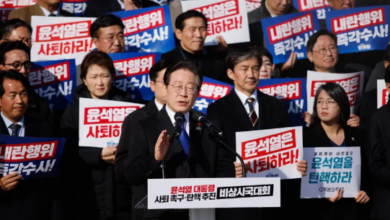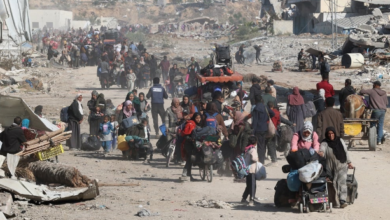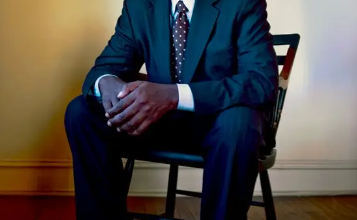German gas price plan exposes EU divisions over energy

BRUSSELS — Germany’s plan to spend billions of euros to help keep gas prices low for its consumers and businesses has received a tepid welcome from fellow European Union members, with some worrying that the measure could exacerbate the energy crisis.
With a recession looming, Chancellor Olaf Scholz said last week that his government would spend up to 200 billion euros (dollars) on the “gas price brake.” Some EU countries think the move by the bloc’s biggest economy should have been coordinated with them. They said they worry it could jack up prices elsewhere.
European economies were already struggling to recover from the coronavirus pandemic, but high inflation and Russia’s war in Ukraine, notably its decision to switch off the gas taps to several EU countries, has given them a fresh battering.
The solution, according to some opponents of Germany’s plan – among them France and Italy – should be more solidarity among EU partners and more use of European Union funds, rather than go-it-alone national efforts.
“If we want to avoid fragmentation, if we want to face this crisis, I think we need a higher level of solidarity, and we need to put in place some further common tools,” Economy Commissioner Paolo Gentiloni said at a meeting of EU finance ministers in Luxembourg.
But he was cautious not to point the finger directly at Germany.
Dutch Finance Minister Sigrid Kaag agreed on the need to coordinate the response to the energy crunch among the 27 member countries, but she opposed the creation of any new EU fund to address the challenge.
The EU already has several funds with “billions and billions that are available and could be put to good use in the first instance,” Kaag told reporters. “We need to channel what we have and invest it in the right manner.”
The Dutch government also unveiled details of a planned energy price cap for households Tuesday, together with the outline of a subsidy system aimed at easing the pain for small-to-medium-sized businesses that use a lot of power.
German Finance Minister Christian Lindner, for his part, said “there had been a misunderstanding,” about what he described as “our protective shield.”
“Our measure is targeted,” Lindner told reporters. “We have to change the order of the electricity market, but our package is not unproportionate. In fact, it is proportionate if you compare the size and the vulnerability of the German economy.”
Czech Finance Minister Zybnek Stanjura, who chaired the meeting, conceded that opinions on the best way ahead differ widely. “Different member states have different energy mixes and so they have different ideas about what needs to be done first,” he said.
The issue is likely to get thrashed out yet again at a summit of EU leaders in Prague on Friday, where the war in Ukraine and its economic fallout for Europe are top of the agenda. But the chances of a breakthrough this week appear slim.
“None of us had foreseen this. We do not know how long this situation will last, the longer-term impact on the economy,” Kaag said. “So coming out of corona, we need to act appropriately, without inadvertently fueling inflation. And that’s sort of the tight rope we are walking, or dancing on.”
Source link





